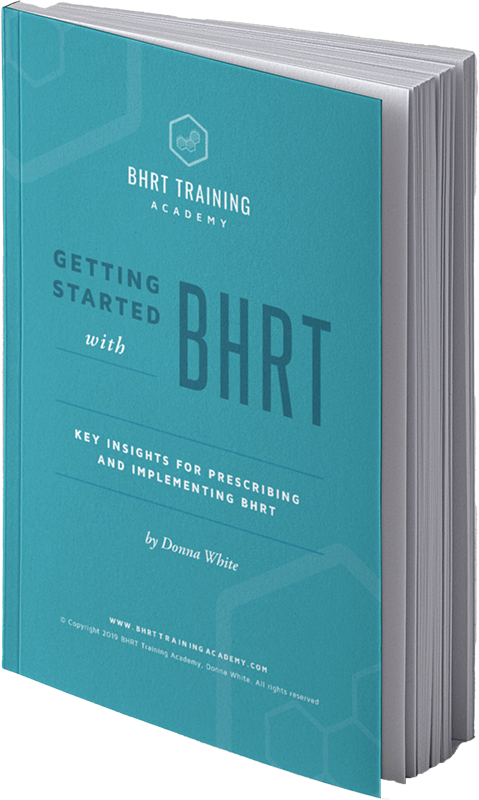Menopause and Hormone Replacement Therapy: Treatments for Top Symptoms

Almost everyone will face hormonal imbalance symptoms at some point in their lives. Some will struggle with severe symptoms, and they might be mild for others. Hormones are a vital part of the body’s ability to function normally and influence everything from reproduction to mood. Aging naturally leads to a decline in estrogen and progesterone in menopause, and this can cause problematic symptoms.
Treatments such as BHRT offer comprehensive, individualized treatment, give women more opportunities to ask questions, discover key causes, and feel more empowered about managing hormonal imbalance symptoms in menopause.
Hormonal Imbalance Symptoms
Our endocrine systems are delicate and hormonal pathways are interconnected and work together to stay balanced. Hormone replacement therapy is a solution for many women experiencing the symptoms of menopause. But because this whole system is so delicate, hormones must be administered cautiously and carefully.
Many practitioners fail to tell their patients who are struggling with menopausal symptoms that, during this time, there is not necessarily a linear “drop” in hormones like progesterone and estrogen. Instead, levels can vary wildly. These fluctuations happen because the body is trying to compensate for natural drops and keep the body in balance.
Symptoms of menopause can vary widely between individuals, and some start and finish menopause at entirely different times in their lives.
When it comes to menopause specifically, many women find this a challenging time, facing symptoms like:
- Irregular periods
- Low sex drive
- Vaginal dryness
- Sleep problems
- Fatigue
- Hot flashes
- Depression
- Memory problems
- Brain fog
- Digestion problems
- Mood swings
- Weight gain
- Infertility
- Muscle loss
- Changes in skin, nail, and hair texture
Learning to prescribe hormone therapies like BHRT may be a safer and more effective way that offers patients many benefits.
Treating Hormonal Imbalance in Menopause with Hormone Therapy
Progesterone is typically the first hormone to decline in during perimenopause which occurs 10-15 years prior to actual menopause. Progesterone therapy can help balance when there is a deficiency diagnosis, such as what occurs during menopause and even perimenopause.
This therapy can help offset estrogen dominance, especially if women are experiencing symptoms such as heavy flow and frequent periods of intense PMS.
Although estrogen typically declines over time—and in some cases, it is a steady drop—estrogen levels can also fluctuate, especially through perimenopause.
Hormone testing should be comprehensive to determine the most appropriate therapy. Testing should be done on a specific day of the menstrual cycle if women are still menstruating. For women no longer having periods, testing can be done on any day.
The Benefits of Hormone Therapy (BHRT) for Menopause
Bioidentical hormone replacement therapy is considered by many experts to a be safe and effective treatment that can be used to reduce or eliminate symptoms such as hot flashes, vaginal dryness, and night sweats. It may also help reduce the severity of other health complications such as osteoporosis, joint pain, and depression. There is some evidence that it might also reduce the risk of certain cancers and diabetes.
Previous publicity about conventional (non-bioidentical) hormone replacement therapy, which came out of the Women’s Health Initiative study, caused alarm about this treatment not being safe. However, it’s since been revealed that health complications resulting from those studies were partly to do with dosage, administration, whether women were in high-risk categories, and the type of hormones given.
To this end, BHRT may be a safer and more effective hormone therapy for menopause with:
- A proper diagnosis
- Regular Hormone testing
- A longer-term health plan
- An understanding of the patient’s history
- A clear assessment of a patient’s risk profile
- Customized prescriptions
- Assessment of patient lifestyle factors which may exacerbate menopausal symptoms
Patients and practitioners should be interested and willing to participate in regular discussions and consider this a long-term investment. The highly individual and tailored approach is, in part, what makes BHRT potentially more effective, as well as an attractive option for many women facing hormonal imbalance symptoms of menopause.
Learn More About Prescribing BHRT for Menopause
You can help your patients reduce physical symptoms and mood swings brought on by hormonal imbalance with Bioidentical Hormone Replacement Therapy (BHRT).
In combination with a comprehensive wellness program and lifestyle recommendations, estrogen and progesterone therapy can be safe and effective in helping women find relief from hormonal imbalance symptoms.
Health practitioners seeking alternative care models can learn how to administer BHRT to offer patients symptom relief and improve their quality of life.
Ready to learn more about how BHRT could fit into your practice? Click here to schedule a strategy call and get started.
Enjoyed this article? Here are three more to help:
- How Do You Lower Your Cortisol Levels?
- What’s the Difference Between Pregnenolone and DHEA?
- Addressing and Treating Hormonal Imbalance in Women

Get the quick read ebook,
Getting Started with BHRT -
Key Insights to Prescribing and Implementing BHRT.
CME's - Earn while you learn.
